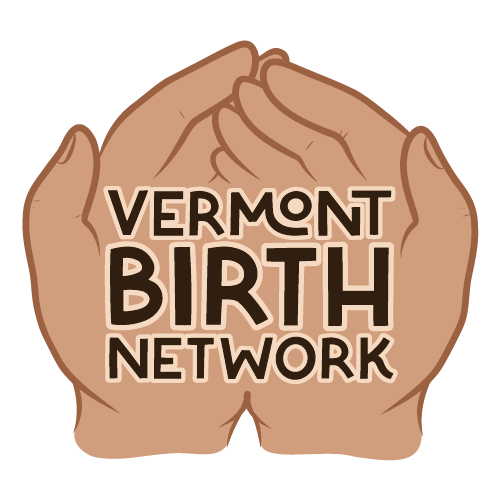Your Guide to: Hiring a Vermont Birth Doula
Having proper support during pregnancy and birth can make all the difference. A Birth Doula provides invaluable assistance during this time. You may have heard that doulas help lower the chance of inventions during births or that they can help the birthing experience go more smoothly, but you may ask, "What exactly does this role entail"? This blog will explore the doula's scope of practice, how to choose a doula, and answer common questions about working with a doula.
What is a Doula, and what is its scope of practice?
A Birth Doula is a trained professional who offers continuous physical, emotional, and informational support to a birthing person and their family before, during, and shortly after childbirth. The doula's scope of practice includes providing comfort measures, helping families to advocate for their wishes, and offering guidance and reassurance. Doulas do not perform medical tasks, but instead complement the clinical care midwives and obstetricians provide.
Doulas often have their own style or way of supporting births. You may find doulas that have expertise in particular areas such as expecting multiples, vaginal birth after cesaran, unmedicated birth, and more. Doulas are individuals in how they practice, so it's essential to find one who is the right do for your family.
How to Choose a Doula: What to Look For
Choosing the right doula is crucial for a positive birth experience. When considering how to choose a doula, look for someone who matches the energy you hope to have during your birth experience. Consider what you may want for your birth, and be sure to ask potential doulas if they align with your hopes and how they will work to support your wishes. Personal compatibility is critical, so feeling comfortable and confident in their presence is essential.
Questions to Ask in a Doula Interview
Many doulas offer interviews or consults so you can talk with them and see if they are a good fit for your birth. This is a time to come prepared with questions to get a good perspective about the folks you are meeting with. To find the perfect match, here are some essential questions to ask in a doula interview:
What is your philosophy as a doula?
Will we have time together ahead of the birth?
What is your experience and training?
What is your approach to supporting a birthing person's partner, family, or friends who may also be attending the birth?
At what point in labor do you arrive?
What is the financial investment for your care?
What support can you offer to help me have the birth experience I'm/we are hoping for?
How long do you stay after birth?
Do you work with a backup doula in case of sickness or emergencies? Can I/we meet them ahead of time?
Do Doulas Need to be Certified?
A common question is, "Can you be a doula without certification?" The answer is yes. While certification isn't mandatory to be an amazing doula, as many people with years of experience are not certified, some insurance companies require that a doula be certified to reimburse for their care.
When to hire a birth Doula
It's never too early to start looking for a doula. Many families begin their search in the second trimester to ensure they find someone who matches their needs and can be available around their due date, but some doulas book far ahead of that. If you think this is the care you may want to have, consider starting to interview a doula early in your pregnancy.
How Much Does it Cost to Have a Doula?
The cost of hiring a doula can vary widely depending on location, experience, and the services offered. So, how much does a doula cost? You can expect to pay between $800 and $2,500 on average. Some doulas offer sliding scale fees or payment plans.
Doula Insurance Coverage
Another essential consideration is doula insurance coverage. While not all insurance plans cover doula services, it's worth checking with your insurance provider. Some states and insurance companies are beginning to recognize the benefits of doulas, which can lead to partial or full reimbursement.
Tricare offers doulas coverage, but the doula must be in network with the insurance for you to use this coverage. Some insurance companies, such as BlueCross Blue Shield, offer reimbursement for select families for doulas up to a certain dollar amount. Some FSA and HSA accounts can also be used for doula care. Reach out to your insurance provider to if they offer any coverage for this care.
In conclusion, a Birth Doula can provide invaluable support during one of life's most significant experiences. By understanding the doula's scope of practice, knowing what to look for in a doula, and asking the right questions, you can find amazing support for your birthing journey. A dedicated doula can make a profound difference, ensuring you feel supported, informed, and empowered throughout your pregnancy and birth.
Explore the possibility of including a doula in your birth plan today and experience the benefits of personalized, compassionate support.

